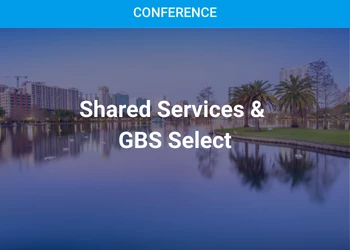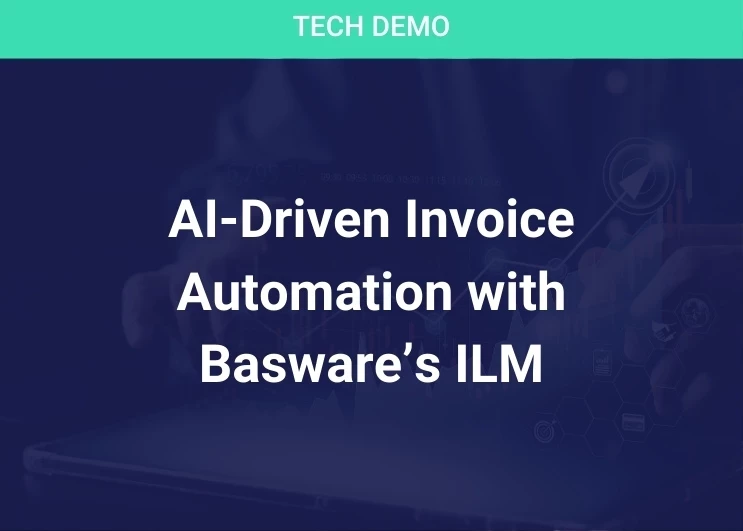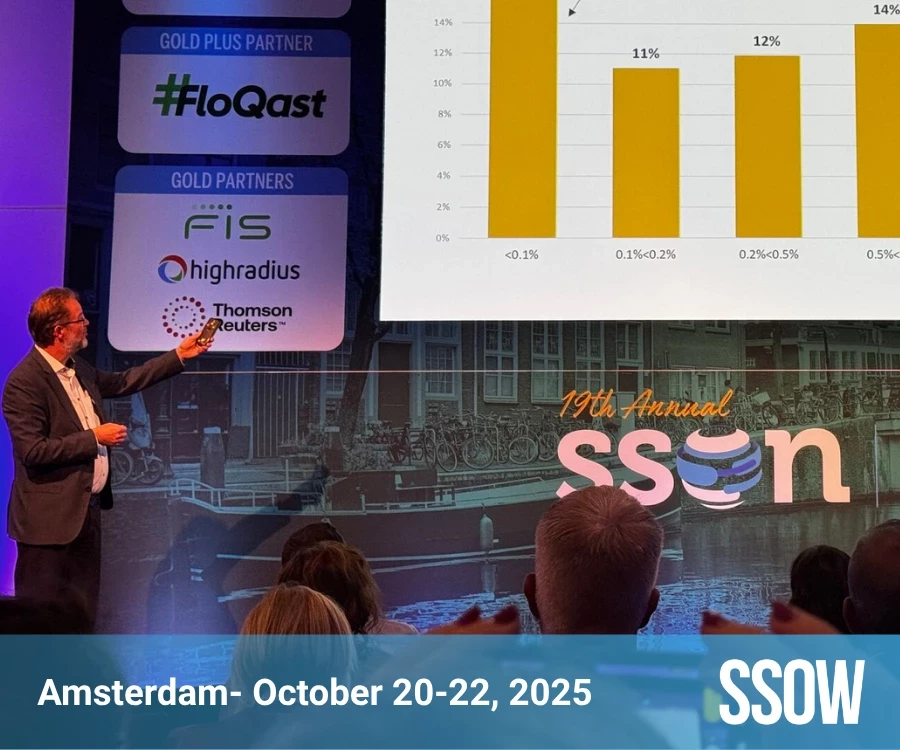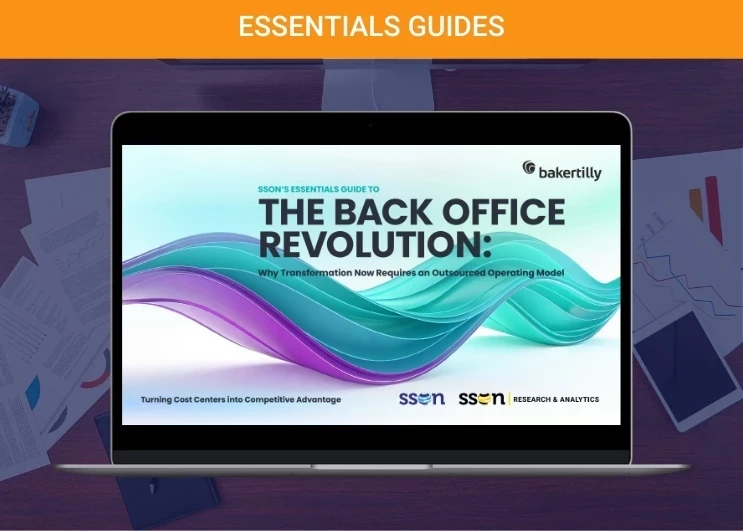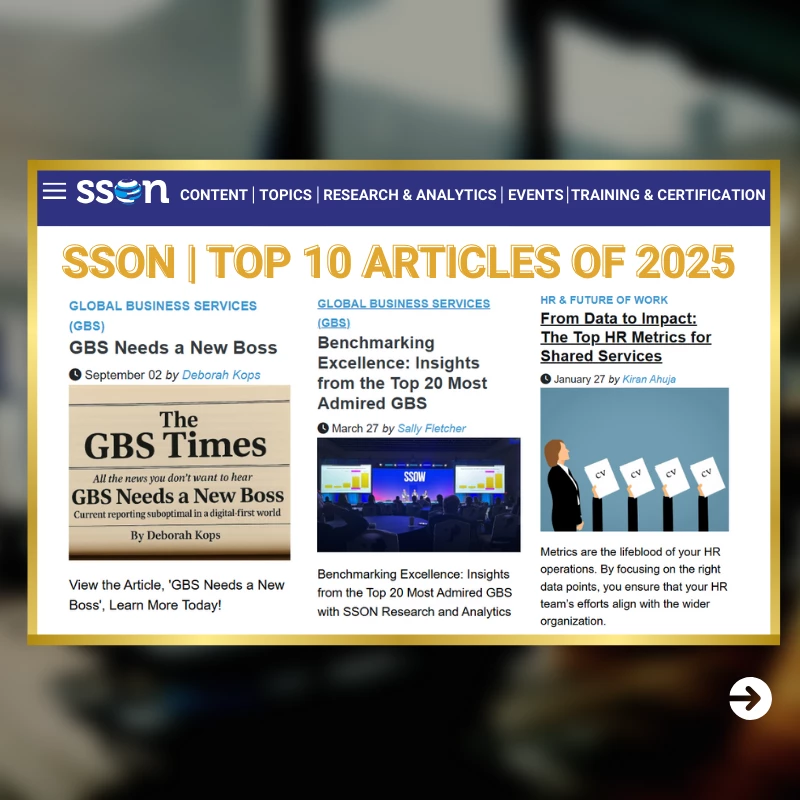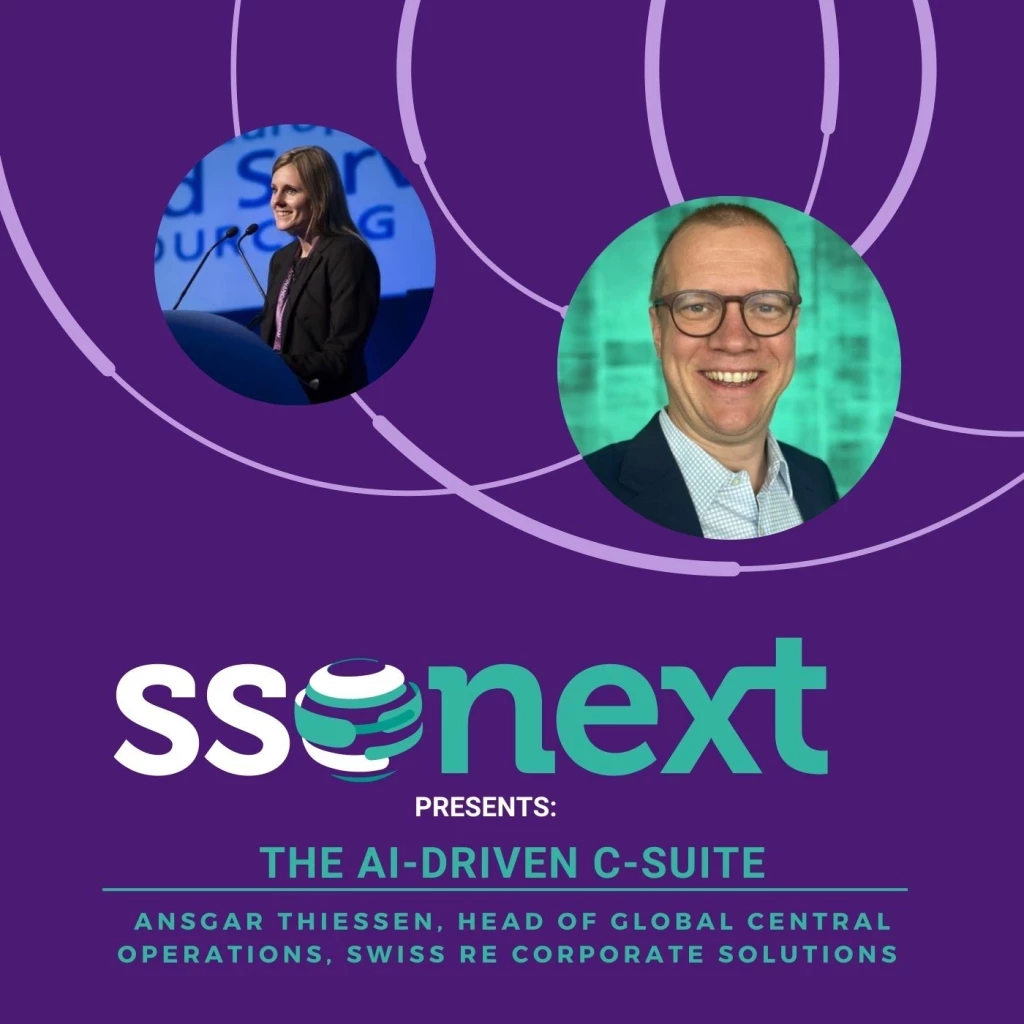Creating the Optimal Data Management Center
Add bookmark
Robert Weltevreden has been described as “one of the few truly full stack GBS leaders out there”.
He has a long track record of getting things done in the GBS space, most recently heading the global service and solutions organization at Novartis and before that at Syngenta AG.
Despite the pandemic, Robert has achieved some terrific results in productivity, scaling, and customer experience so Barbara Hodge, Global Editor, SSON and host of the SSONext podcast sat down with him to get his thoughts on where GBS is heading.

A common pitfall when accelerating the digital and data journey
A trap many companies and business leaders fall into is to think that data and digital is all about technology.
Robert says, “People assume perhaps that if you throw the right technology at a problem, it’ll reinvent itself. In reality, digital is about two things in my experience. One, it's about discipline - the discipline of getting your data in control is the bedrock, the foundation of your digital journey. And doing that is super hard work, particularly for companies that have a long legacy. Getting your data clean, getting standardized, and keeping it clean. That's the foundation, which is not about technology, it's just about hard work. Then the digital disruption you can apply on to clean data is typically more about changing business models, than it really is about just applying technology. Of course, there's a technology mix in it. But the business model change is where the real value unlock comes from.”
A framework for the optimal Data Management Center
Over the last seven or eight years, the idea of Master Data Management, and digitizing data at point of entry has been big in the industry. That said, a lot of the automation, beyond the basic and transactional, don't work as they should. And they often don't scale.
Robert’s asks GBS leaders to think about it from a macro perspective, since there are a few disciplines that come together in the set up of an optimal data management system.
First, you need to have data ownership at the right senior level in the business. Master data management, or indeed data management as a whole, is not something you can delegate five to six levels down in an organizational hierarchy. The discipline needs a senior business line owner from domain finance data or customer data. This leader will provide the umbrella of sponsorship. Robert stresses that while the field is anchored in the day-to-day work of cleaning and data operations, it's as much about setting data standards, creating data policies to govern operations, and then sticking with those policies. That’s where the seniority of business sponsorship will play a key role for data teams.
Then comes your Data Domain - reporting in to that senior data sponsor will be a team of people who are the true data experts, or data stewards. Once again, these leads will hold a really important role for designing the data, and for thinking about what data is going to be needed in the future. Robert refers to this role as the ‘standard bearer’.
The third element in your system is a very good data operations approach. Robert describes this as “operations constructs, which includes technology, which includes people, which includes process”. Depending on the business you're in, the data operations approach can either be a centralized team, or it can be a technology-enabled decentralized way of working. In the latter case, everybody processes data in the same way, to the same quality.
If you like the audio medium, and would like to listen to a detailed interview that dives much further into the teams, the talent and the tools you need to build optimal data centers, listen to this episode of SSONext with Barabara Hodge and Robert Weltevreden here





